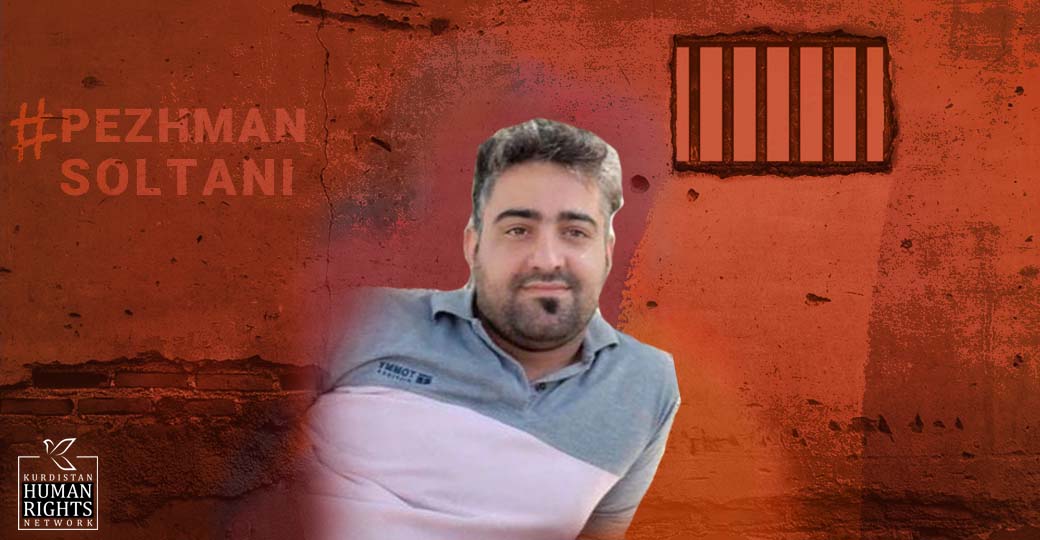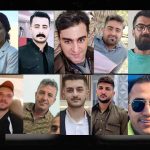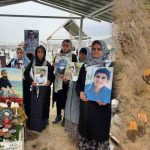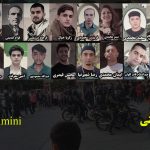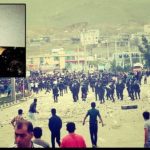Arrest
Pezhman Soltani was arrested by the Intelligence Organisation of the Islamic Revolutionary Guard Corps (IRGC) on 15 April 2023, along with several other civilians, during the Women, Life, Freedom anti-government uprising in Bukan, West Azerbaijan Province.
After his arrest, he was taken to the security service’s detention facility in Orumiyeh, West Azerbaijan Province.
Soltani was held in solitary confinement for several months without the right to meet with his family or have access to a lawyer.
During this time, he was subjected to torture to extract forced confessions, before being transferred to Orumiyeh Central Prison.
Judicial Process
In a joint trial with Soran (Ali) Ghassemi, Kaveh Salehi, Rizgar Beygzadeh Baba-Miri and Javanmard Mam-Khosravi, he was charged with “armed insurrection” (baghi), “enmity against God” (moharebeh), “assembly and collusion”, “collaboration with hostile governments”, and “smuggling satellite internet equipment (Starlink)”.
He was also charged in a separate case, along with Ghassemi and Salehi, with “murdering a member of the IRGC”.
Current Status
Soltani is currently being held in Orumiyeh Central Prison.
Additional Information
On 14 July 2024, Tasnim News Agency, affiliated with the IRGC, released a video of his forced confessions along with those of three others involved in the same case.
Notes:
1. Women, Life, Freedom Uprising: Jina Amini (Mahsa Amini), a 21-year-old Kurdish woman from Saqqez, Kurdistan Province, was arrested on a street in Tehran on 13 September 2022 by the morality police because of the way she was dressed. Shortly after her arrest, she was transferred to Kasra Hospital in Tehran with head injuries and symptoms of brain death, and passed away three days later on 16 September 2022. The government’s killing of Jina sparked unprecedented anti-government protests, which began with a large turnout at her funeral at Aichi Cemetery in Saqqez and quickly spread to many cities across Iran. These widespread protests against the Islamic Republic of Iran, which lasted for several months, resulted in at least 527 protesters being killed and thousands injured and arrested. The protests are known for their central slogan of “Women, Life, Freedom” (Kurdish: Jin, Jiyan, Azadi).
2. Article 287 of the Islamic Penal Code: “A group that engages in armed insurrection against the foundation of the Islamic Republic of Iran is considered rebellious, and if they use weapons, the members shall be sentenced to the death penalty.”
3. Article 279 of the Islamic Penal Code: “Moharebeh (enmity against God) is defined as drawing a weapon with the intention of killing, stealing from, or intimidating people in a way that causes insecurity in the environment.” According to Article 282 of the Islamic Penal Code, “if a person commits the crime of moharebeh, they will be sentenced to crucifixion, execution, amputation of the right hand and left foot, or exile, at the discretion of the judge.”
4. Article 610 of the Islamic Penal Code: “If two or more individuals gather and conspire to commit crimes against the internal or external security of the country or to facilitate the means for committing such crimes, they shall be sentenced to two to five years’ imprisonment, unless they are considered mohareb (those who commit enmity against God).”
5. Article 508 of the Islamic Penal Code: “Any individual or group who, in any manner, collaborates with hostile foreign states against the Islamic Republic of Iran, provided they are not deemed to be moharebs (enemies of God), shall be sentenced to one to 10 years’ imprisonment.”

